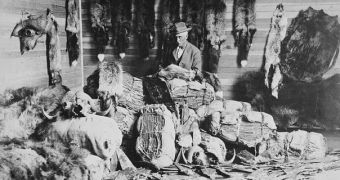Although China tries to display an eco-conscious attitude supported by numerous animal preservation campaigns, a recent tiger bone wine auction shows anything but respect for endangered creatures and vulnerable ecosystems.
The Beijing auction has raised a lot of interest with its unusual, expensive exhibits, represented by tonics and spirits made of tiger, rhino horn and pangolin, the Guardian reports.
Even if the trade of these items is strictly prohibited by the Chinese legal framework, such projects flourish and come along with significant sale numbers that fill the pockets of owners.
Surprisingly, the event had been advertised on state television, but the police failed in showing up at the controversial auction. Googut, the famous auction house, made sure its clients are fully aware of what they are paying for, since it has distributed catalogs with dozens of pages.
One of the most expected products was the bone tiger wine, an eccentric product meant to "stave off chills, improve circulation and eliminate fatigue." The price started from 5,000 yuan (£500/€584/$781) and was likely to reach 200,000 yuan (£20,000/€23,375/$31,262) for every case of this miraculous beverage.
Most of the animal rights groups state that it doesn't matter if the products had been manufactured before the Chinese government decided to ban these products that support animal cruelty and poaching activities.
The fact that this auction is currently encouraged implies that the illegal trade and the black market meet all the appropriate conditions to boost their profit margins.
"It doesn't matter whether the tiger bone products are pre-ban or not, their trade is forbidden by the Convention on International Trade in Endangered Species and domestically in all tiger range states," declared Grace Ge Gabriel of the International Fund for Animal Welfare for the Guardian.
After a Guardian reporter revealed his identity during the event, the tiger wine bottle auction was postponed, a decision that triggered the buyers' disappointment, since these products appeared to be the truly “good stuff,” according to one of the participants.
Apparently, eccentric consumers and greedy auction houses are two of the most relevant risk factors that only worsen the situation of already vulnerable creatures in Asia, like tigers and rhinos.

 14 DAY TRIAL //
14 DAY TRIAL //